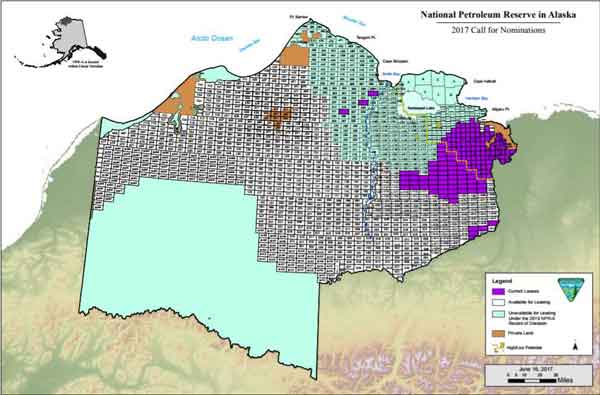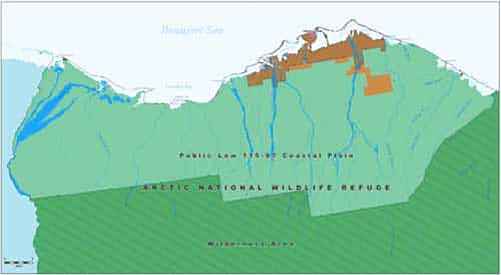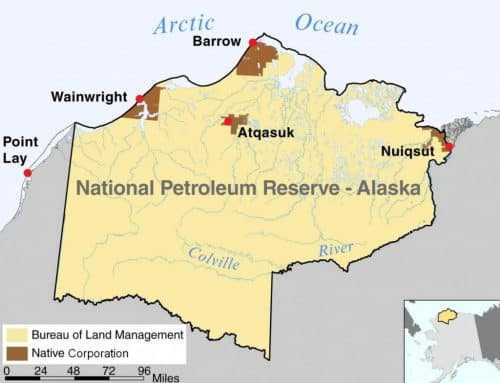Washington — Today, the Bureau of Land Management (BLM) released its final Record of Decision for a new Integrated Activity Plan for the National Petroleum Reserve-Alaska (Reserve) in America’s western Arctic following a rushed and incomplete process.
The new plan opens seven million additional acres within the Reserve to oil leasing, bringing the available total to 18.6 million or 82% of the Reserve — an area larger than all of West Virginia. This plan was adopted as part of a rushed process that prioritized oil and gas interests over public concerns. The alternative that BLM has adopted was not presented to the public during the process until the final environmental impact statement was published and was never the subject of any public review or comment. It endangers the Teshekpuk Lake Special Area, one of the most productive wetland complexes in the world, by opening that entire area to oil and gas leasing. Teshekpuk Lake is a haven for up to 100,000 molting geese, more than half a million shorebirds and high densities of loons and eiders; and it is an important calving ground for the Teshekpuk Lake caribou herd, an important source of food and culture for communities on the North Slope. The new plan also completely does away with protections around the Colville River, which provides water and fish to western Arctic communities and was listed just two years ago as among the nation’s most endangered rivers due to the threat of oil and gas extraction. Multiple lawsuits have already been filed challenging the adequacy of the decision and BLM’s failure to protect sensitive resources and uses in the Reserve.
[content id=”79272″]
“America remains mired in a national health crisis and global oil markets are experiencing continued volatility, yet the Trump administration has once again opted to barrel forward with unnecessarily aggressive oil and gas development. The administration’s new management plan for the Reserve faced clear public opposition, including from the closest community to the area’s oil development, Nuiqsut, which experiences increasingly negative impacts on air quality and public health as well as concerns over food security and cultural practices due to climate change and existing development.
“Undoing the current management plan to pursue an alternative that favors aggressive development over the concerns of Indigenous voices and the broader public is emblematic of this administration’s preference for catering to the fossil fuel industry at the expense of its citizens. The Trump administration’s BLM has put forward a new management plan designed specifically to accommodate and promote oil development, not to protect key areas utilized by the Teshekpuk Lake caribou, migratory birds or other wildlife resources, and certainly not to protect communities in the region already facing unacceptable impacts on health, food security and cultural sovereignty due to existing industry activity.
“This decision comes as the administration pushes a slate of projects that could devastate Alaska’s public lands and waters beyond the western Arctic, including in the Arctic National Wildlife Refuge, Tongass National Forest and Gates of the Arctic National Park and Preserve. As the world recognizes the urgent need to address the climate crisis, our country needs to be limiting new fossil fuel extraction on federal lands, not selling off every available acre for development.”
###








